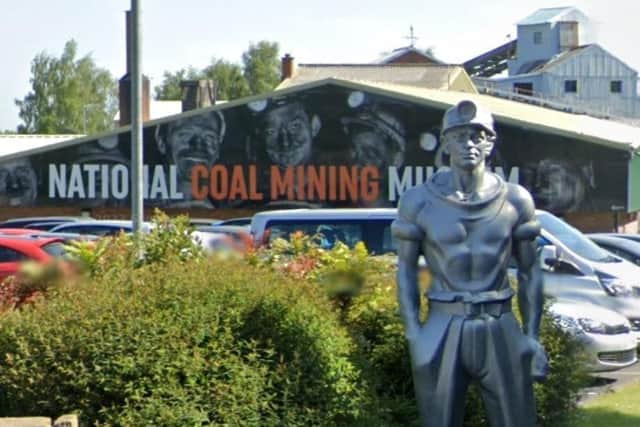National Coal Mining Museum: Study reveals houses in a Wakefield village could be heated with mine water in the future
and live on Freeview channel 276
Mine water heat schemes extract geothermal-heated mine water and use the energy to heat buildings.
The Gateshead mine water heat scheme is currently the only one in operation in the UK.
Advertisement
Hide AdAdvertisement
Hide AdShaun McLoughlin, mine director at the NCMM, said: “The Coal Authority realised we’ve got the same, if not more, potential than the Gateshead site.”


Shaun said the high level feasibility study was commissioned several months ago, which revealed there was potential for mine water under the museum to be used to heat local social housing, nearby HMP New Hall, and decarbonise the museum itself.
He said: “We’ve been working with the Coal Authority, Historic England, and recently had a meeting with Wakefield and Kirklees Council to explore options."
The proposal is still in its early days, and the report did not state how many houses could potentially be heated.
Advertisement
Hide AdAdvertisement
Hide AdMine water heat schemes work by extracting geothermal-heated mine water – which is warmer the further down it is – into a heat exchanger. Heat is then passed on to a heat pump and finally onto networks that provide heat to buildings.
Normally, the mine water would be returned underground. However, Shaun explained this would not happen in the museum’s case due to the huge amount of water below ground.
In the Victorian era, the area surrounding the NCMM would have had more than 150 mines, which Shaun said has made the ground well fractured with water currently running through it. Added to this is rainfall which, eight to ten weeks after falling, contributes to the existing water underground.
Shaun said the museum currently pumps out 1.5 million gallons of water per day, which is then cleaned and contributes to the local watercourse.
Advertisement
Hide AdAdvertisement
Hide AdDue to this constant supply of water, the extracted water will not be pumped back into the mines if the proposals get the go-ahead.
If successful, the scheme has the potential to be sustainable and help to decarbonise the museum and save it money.
Shaun said he would like to see the process of how it works become a feature for visitors to the museum.
Shaun said: “We would like tell the story to the general public of how mine water is helping to provide energy to the museum and local area.”
Advertisement
Hide AdAdvertisement
Hide AdThe report suggested the scheme would cost more than £2million, meaning the museum – as a registered charity – would have to look to the councils for funding the project.
At this stage, it is not possible to say how long it could take to be up-and-running, however Shaun said it would certainly be a few years.
The Coal Authority said it took around three years to deliver the Gateshead mine water energy scheme.
The Coal Authority, which is sponsored by the Department for Energy Security and Net Zero, estimates that former coal mines lie below 25 per cent of UK homes and businesses.
The Gateshead mine water heat scheme – which provides heat to hundreds on council-owned homes – is currently the only one in operation, with one more in development in Seaham, County Durham.